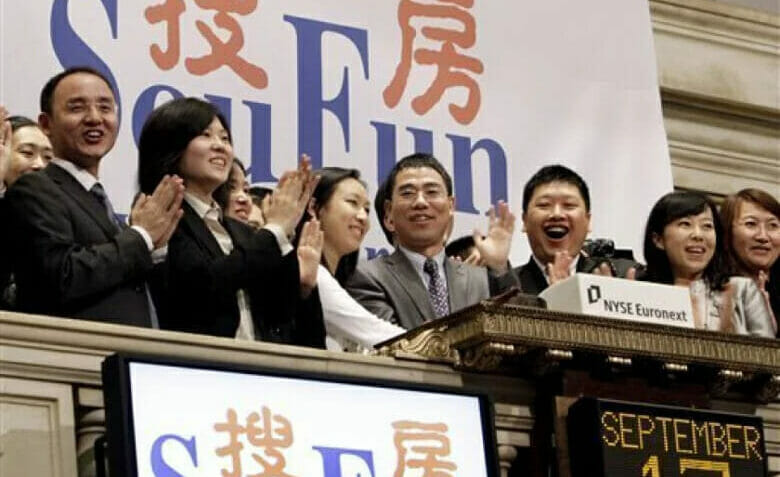
Vincent Mo set up what was then called Soufun in 1999
Fang Holdings has announced the departure of its chairman and founder, Vincent Mo, three years after the China internet pioneer relinquished day-to-day control of the Beijing-based real estate portal.
Fang said Monday in a release that Mo was stepping down from the board for personal reasons, effective that day. Fang Holdings’ NYSE-listed shares have lost 7.5 percent of their value so far this year, and the stock’s Wednesday closing price of $3.60 per share was down 99.6 percent from its 2014 peak of $870.49.
“Mr. Mo’s resignation did not result from any disagreement with the company on any matter relating to the company’s operations, policies or practices,” the firm said. “Fang thanks Mr. Mo for his efforts and contributions to the company.”
Fang, which has failed to file audited financial statements since 2019, has been given just over two months to bring its records up to date or it will be delisted from the New York Stock Exchange.
Fallen Star
The board appointed Richard Dai, the former president and CEO of Fang precursor Soufun Holdings, to succeed Mo as chairman. In addition, Peng Cui was named chief financial officer after serving as acting CFO since January 2021.

The future looked bright at Soufun’s 2010 IPO
Mo started Fang as Soufun.com in 1999 to provide a search engine for residential listings. He built the business into China’s largest online real estate platform, but it was eclipsed by new competitors like Warburg Pincus- and Tencent-backed Beike, as well as local classifieds platform 58.com and its property listing affiliate, Anjuke.
After a 2010 IPO, Fang’s business model of selling banner ads to cash-rich developers started to suffer in 2014 when China’s property market entered a period of slower growth and greater risk. To counter this shift, Fang sank cash into creating its own network of agency offices, hoping to expand beyond selling listings.
The company also launched a price war with offline agents by offering to facilitate deals at a 0.5 percent commission rate — the lowest in the industry — to attract homebuyers. The strategy undermined Fang’s relationships with traditional intermediaries, who then boycotted the platform, further driving down the company’s ad revenue.
In 2017, Fang publicly acknowledged the failure of its transformation and announced a return to its traditional advertising strategy, but revenue from its listings and marketing services continued to shrink.
In early 2019, Mo stepped aside as Fang’s CEO in favour of the company’s president, Jian Liu, after revenue fell 25.5 percent year-on-year in the third quarter of 2018. Mo had stepped back into the top executive position at Fang in 2014 when Dai resigned to pursue studies at Stanford University after leading the company’s operations for eight years.
Waiting for Results
Fang disclosed last November that the NYSE had agreed to an additional trading period through 25 April 2022 to give the company time to file an annual report for the year ended 31 December 2020.
Fang has not issued a financial report since last March, when it filed unaudited 2020 results showing revenue of $216.2 million, down 1.6 percent, and a net loss of $6.5 million, narrowing from $10.3 million in 2019.
If the company fails to complete the filing of its 2020 results and any subsequent delayed filings by 17 May, the NYSE plans to move forward with the initiation of suspension and delisting procedures, Fang said in November.
Leave a Reply